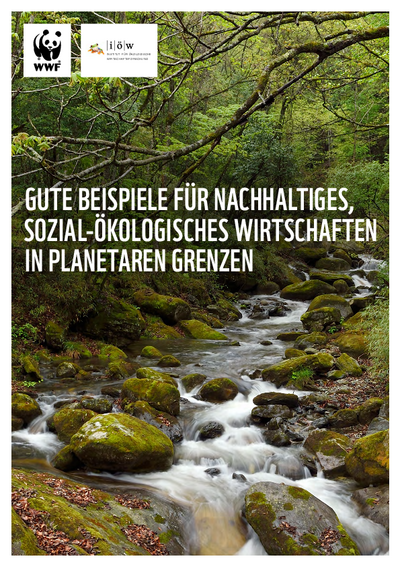Good practice examples for sustainable, socio-ecological economy within planetary boundaries.
Ten national and international good practice examples that the IÖW researched on behalf of the WWF and examined for their socio-ecological sustainability impacts demonstrate that sustainable, socio-ecological economy is possible. The transformation projects address five different important fields: mobility, agriculture and food, energy supply, circular economy and resource-intensive industries.
Innovative mobility concepts are being tested in Barcelona (Spain) with the Superblocks concept and in Paris (France) through new multimodal supply chains. In terms of agriculture and food an example from West Sussex (UK) shows how intensively used agricultural land was successfully transformed through a rewilding program. In the field of energy supply, the good practice example in Schwemmiweg in Walenstadt (Switzerland) shows how a local electricity market can be implemented with self-produced solar power. In terms of circular economy, the Kalundborg symbiosis in Denmark is considered the world's first industrial symbiosis in which various material, energy, water and by-product flows are exchanged among the participating companies.
All these examples show significant environmental and social effects. These include CO2 savings and the reduction of pollutants, as well as the positive effects on biodiversity and ecosystems. On the social effects side, the focus is primarily on positive developments for health and well-being, as well as the creation of new jobs. Even though some of these projects have been copied elsewhere, they have not transformed dominant pratices of production and consumption practices in the five fields towards more sustainable configurations.



